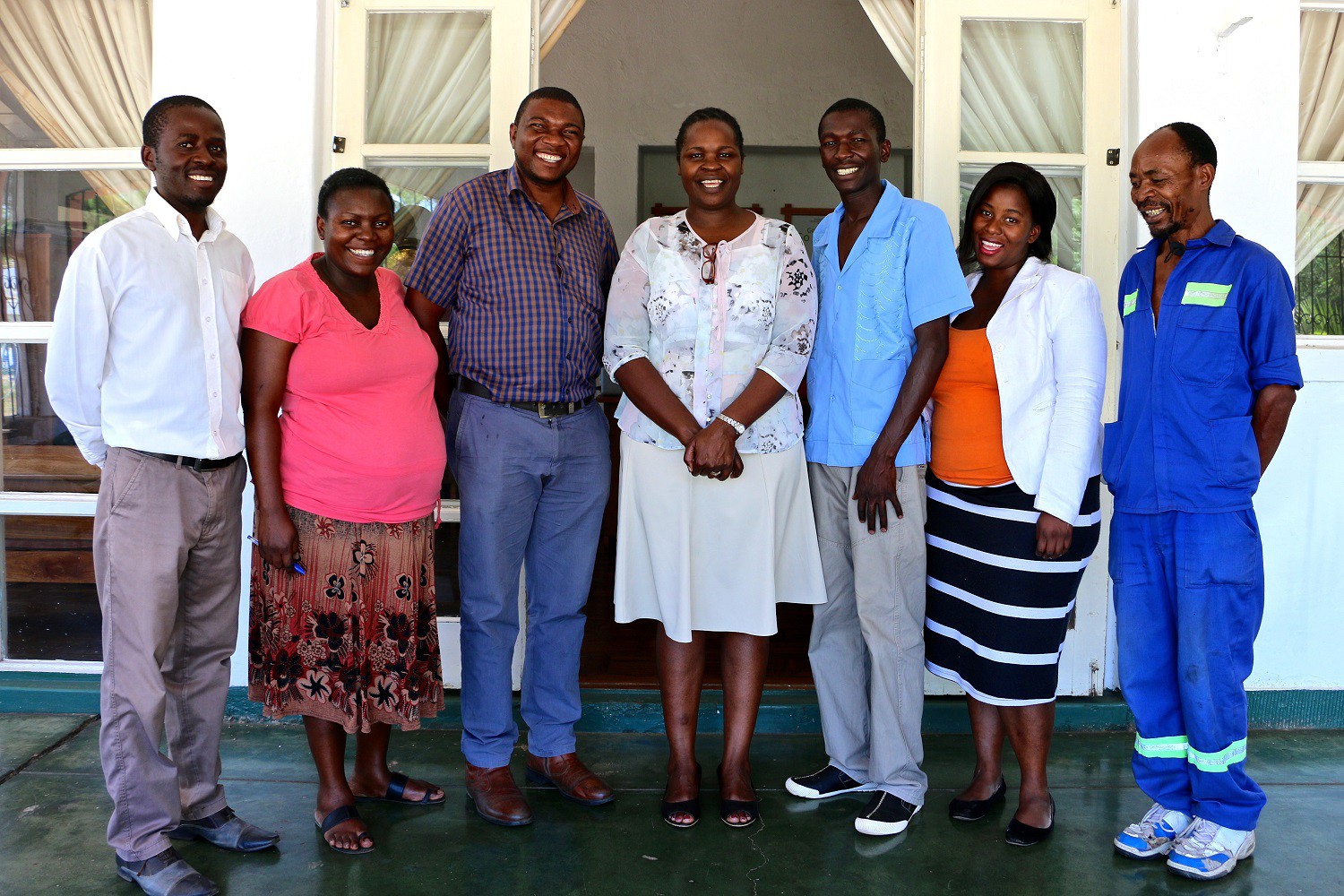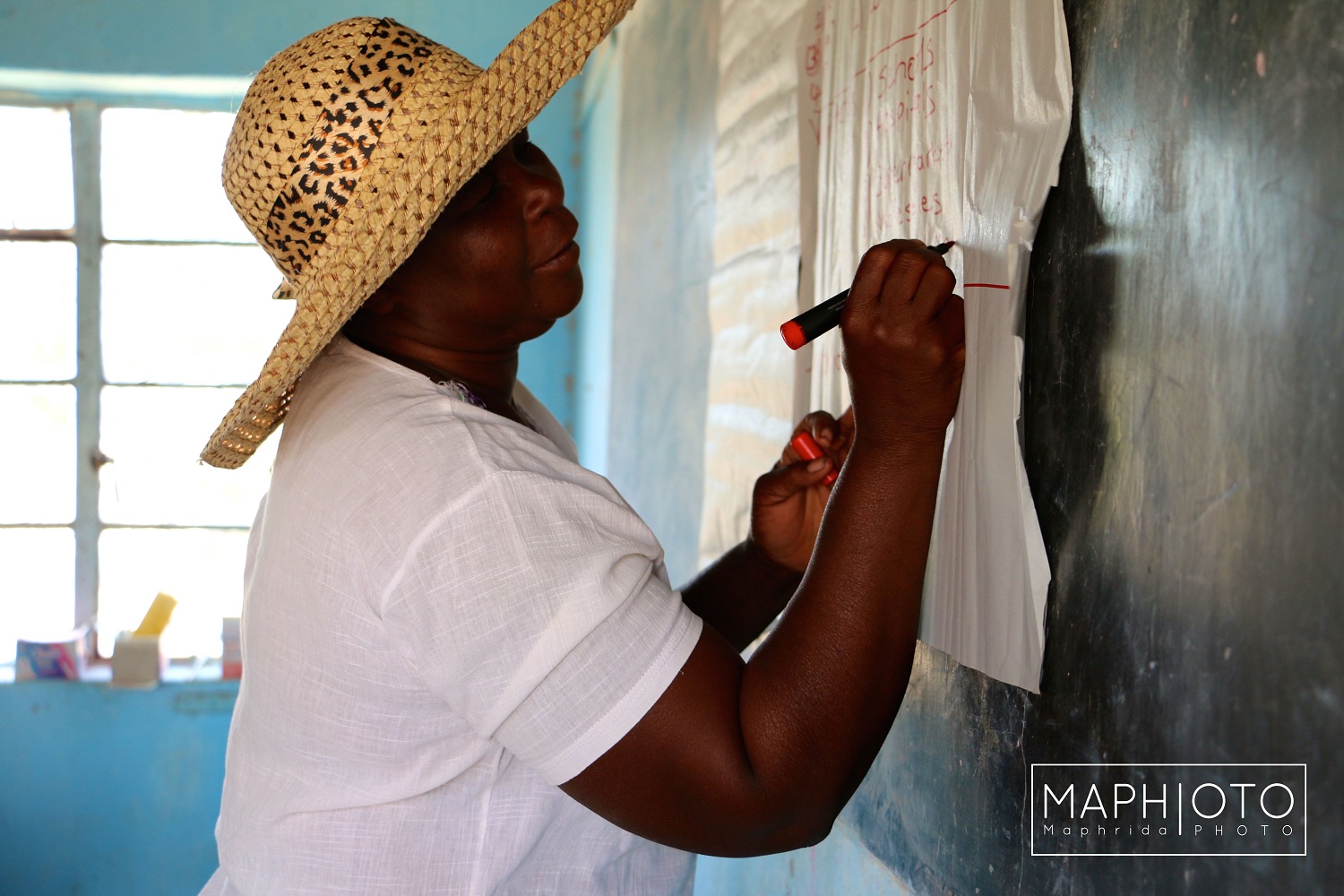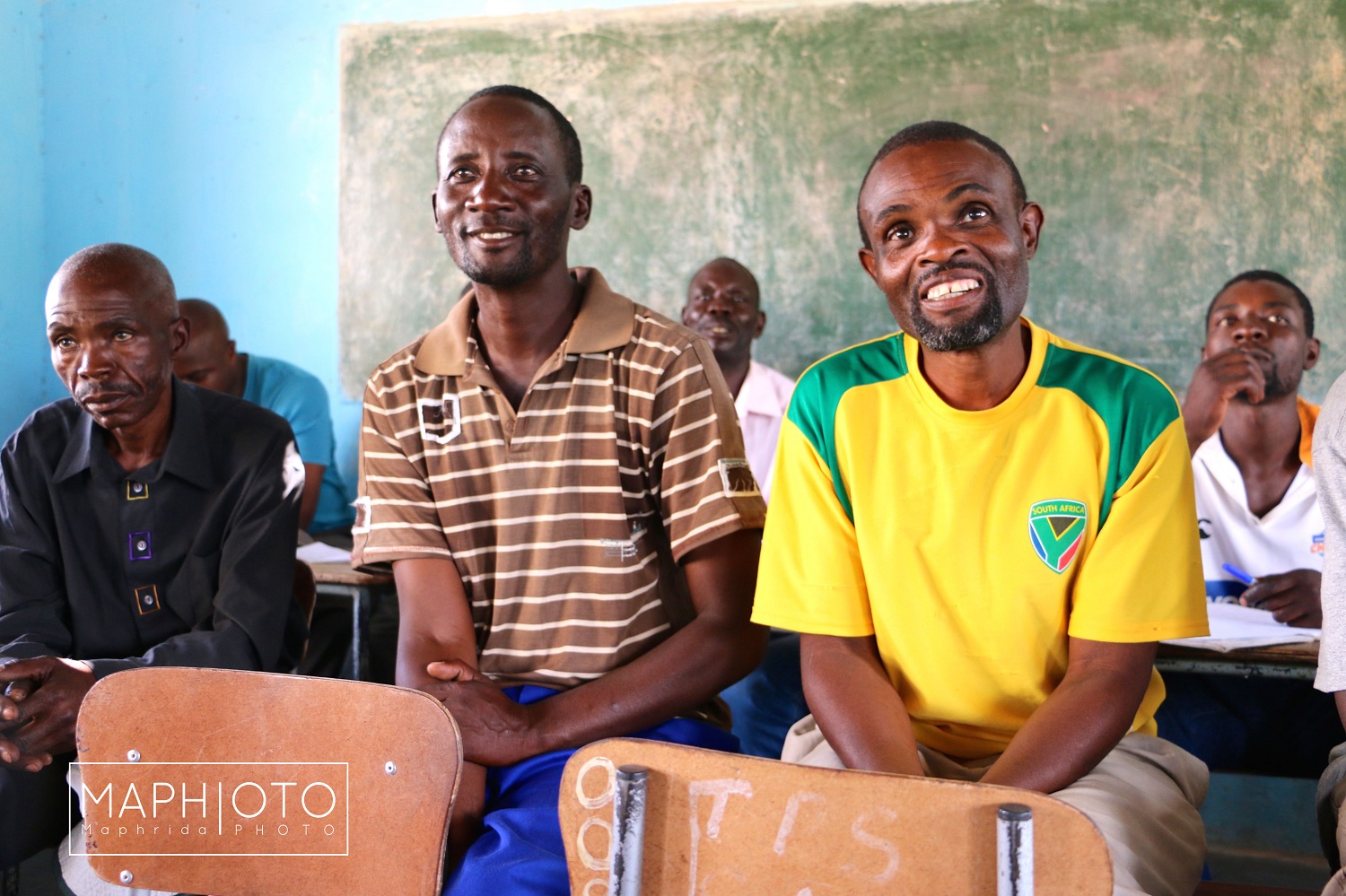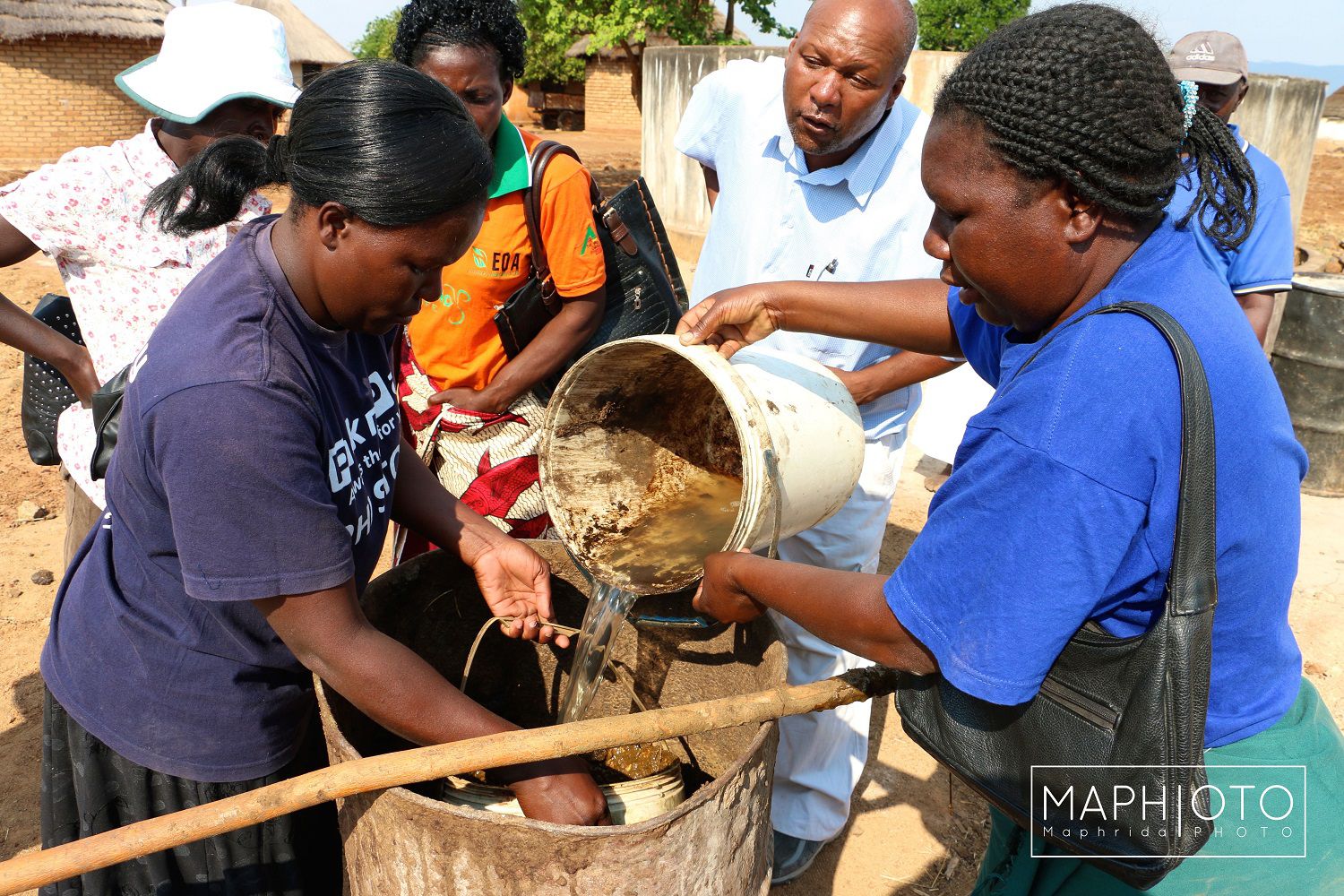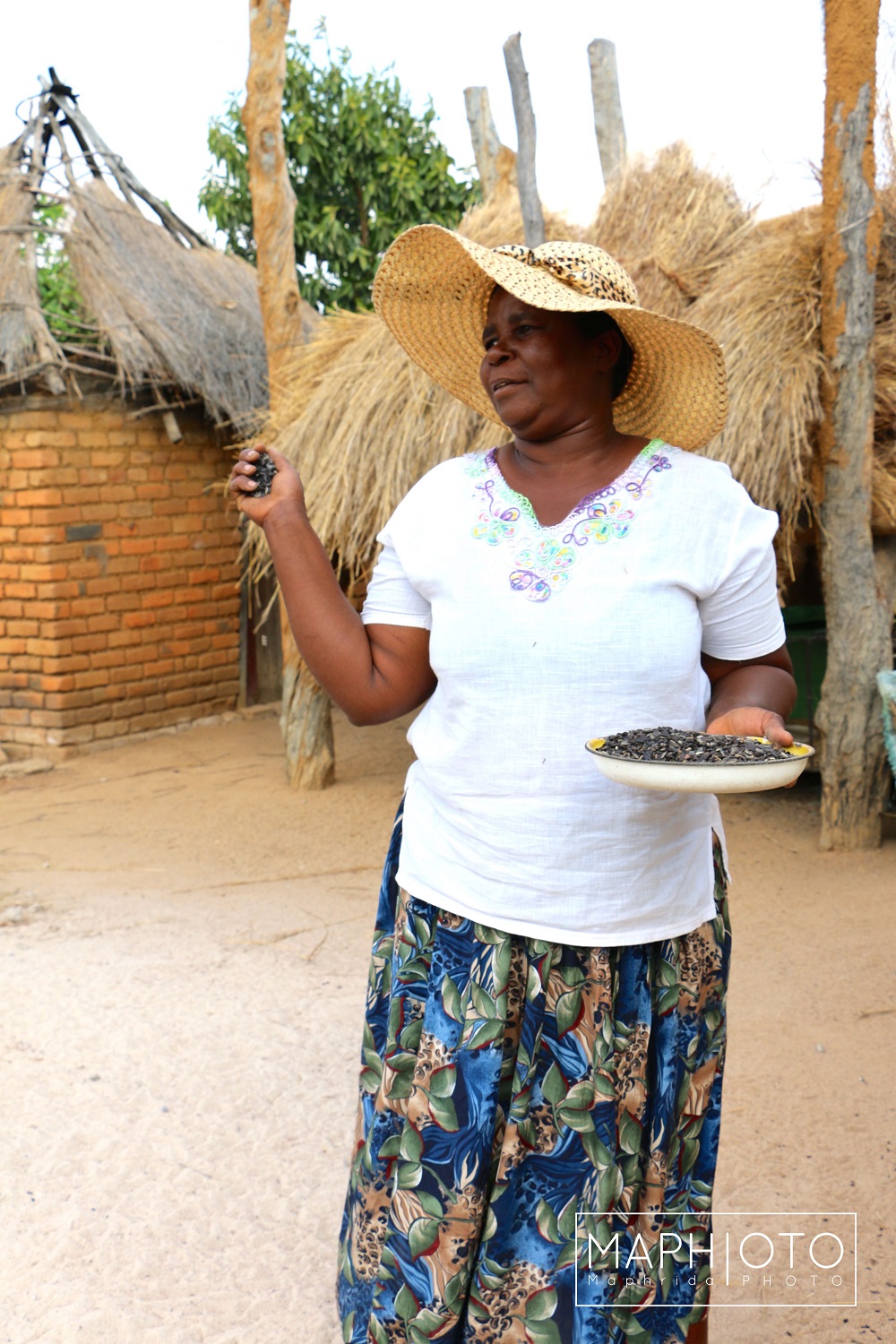Making organic mainstream in Zimbabwe
During the summer of 2015, I interned at the ETH Zurich World Food System Center (WFSC). Coming from a Bachelor in Media Culture, there were often times when I questioned my contribution to the world food system realm prior to the WFSC internship, but it was during a session on media at the World Food System Conference 2015 that the need for interdisciplinary approaches in solving world issues was emphasised. The conference helped me discover media’s role in translating scientific information to the general public, and this became the conception of my life’s career goal: to help build media’s place in science, or in this case, the global food system. With my self-taught filming and video editing skills, and interest in organic agriculture, I applied for the WFSC and Stiftung Mercator Schweiz Ambassador Program and received a grant to pursue a project on organic agriculture and media in Zimbabwe from October 2015 - January 2016.
I worked with the Zimbabwean Organic Producers and Promoters Association (ZOPPA Trust) during my project period, which allowed me access to the organic sector and its actors. ZOPPA is the national movement for organic agriculture in Zimbabwe that promotes organic as an alternative mode of production. They lobby and advocate for policy that supports organic agriculture in Zimbabwe and adapt international guidelines for organic production to fit local conditions and monitor and regulate them. ZOPPA coordinates agricultural activities for the growth of the organic industry and brings organic practitioners, promoters and processors together with market leaders through ‘Forum Meetings’, in an attempt to facilitate market linkages. These Forum Meetings, which focused on collaborative, solution driven discussions on issues faced by the organic sector and empowering small-holder farmers, were their main activity during my time with them.
Pre-forum meeting with organic farmers at ZOPPA offices to prepare them for a Forum Meeting. Photo by: Maphrida Forichi
Market development training in Wedza (Mashonaland East Province of Zimbabwe and located about 127 km south of the capital, Harare) to empower farmers to be confident in the value of their produce. Photo: Maphrida Forichi
Media in organic in Zimbabwe
The media’s limited involvement in organic agriculture in Zimbabwe is one of the causes for underdevelopment of organic. Besides some infrastructural issues in Zimbabwean media, the director of ZOPPA also mentions that even when organic is published by the news, it is sometimes misrepresented perhaps because some journalists lack contextual background on the matters at hand. ZOPPA adds that their social media platforms are not as active as they wish them to be, because there is little local documented content to share. Acquiring this content would require them to travel throughout Zimbabwe to capture stories, but there isn’t enough enabling funding for them. Meanwhile, giving organic agriculture practitioners (often rural, small-holder farmers) this responsibility would be ineffective, as they are not equipped with the relevant technology or skills. Therefore, it should be up to media to fill this gap. I found that besides reports published by ZOPPA itself, there are hardly any news sources documenting and reporting on what is going on in the organic agricultural sector.
One would ask why it is so important to promote organic in Zimbabwe? I’ve witnessed and experienced the effects of climate change myself in Zimbabwe’s agriculture. The country experiences recurrent droughts and long dry spells. This has had adverse effects on the economy, since agriculture is one of Zimbabwe’s major economic drivers, and on the livelihood of poor families who are dependent on farming for their well-being. Some also believe that the consumption of conventionally produced and processed foods has taken a toll on peoples’ health and has resulted in an increase of incommunicable diseases and malnutrition in Zimbabwe. Organic agriculture could help create lesser dependence on chemicals and synthetic fertilisers, restores biodiversity and potentially promotes food security and improvement to peoples’ health and incomes.
Making organic mainstream in Zimbabwe
Gender meeting in Seke District (Mashonaland East Province and located about 30 km from the capital, Harare) where organic farmers expressed their grievances about lack of donors. The Seke farmers don’t have a reliable water source and this is hindering their progress. Photo: Maphrida Forichi
Drawing on the experiences from my enriching WFSC internship, I decided to create a documentary called Making Organic Mainstream in Zimbabwe to help bridge the communication gaps between and among stakeholders (from producers to consumers) along the Zimbabwean organic food value chain. I chose the documentary format because video has more potential to reach and impact a larger audience than print materials and social media for instance. The chief aim of the documentary is to generate awareness among consumers and inform them about organic produce to help with the organic sector’s development. It will feature the perspectives and experiences of different organic actors — including a successful, rural organic farmer, an organic beekeeper, integrated farming system innovator, restaurant owner etc — who I met through various interactions. Specifically, this documentary will explore what “organic” agriculture is, what its consumers believe to be its pros, challenges faced by the organic sector, like accessibility for instance, and finally what Zimbabwe can do to move forward.
Organic farmer from Wedza District with his organic carrots. Photo: Maphrida Forichi
The content of the documentary was constantly inspired by field visits, interaction with various stakeholders and ZOPPA meetings, where I quickly learnt about the challenges faced by small-holder organic farmers which also affects the entire Zimbabwean industry. The main difficulty for them has been building a market for their products. This is attributable to the strenuous relationship between farmers and distributors, who play blame games as one accuses the other for being inconsistent with supply and the other complains about the market not giving them enough confidence. Another challenge small-holder organic farmers encounter if they are indeed successful in getting their goods on the market is their organic produce getting diluted with and even over powered by conventional produce, so farmers don’t get the premium price they deserve on their products. They are constantly struggling for recognition, appreciation and respect. Fortunately, demand for organic produce is growing as Zimbabweans become increasingly conscious about their health and the environment, and it is up to organisations like ZOPPA to intervene in such trends.
My hope is that the documentary will help Zimbabweans make informed decisions about their consumption. I believe if demand for organic agriculture increases, retailers and distributors will feel pressured to meet this demand due to economic interests and this would drive supply and encourage organic farmers to grow more, and also maybe even create incentive for synthetic fertiliser companies to produce organic fertilisers. More importantly, this documentary should capture the attention of policy makers and motivate them to create an enabling environment for the organic sector to thrive in Zimbabwe. But this chain reaction can only begin when people become aware. It will begin with eradicating the common and misguided conception that “all Zimbabwean food is organic.” The documentary is still being edited however, but I am hoping to be done with it by June 2016. I am still exploring relevant channels for its distribution, but upon my next visit in Zimbabwe, I hope to organise and host an open air viewing of the documentary. In the meantime, a little teaser can be viewed here.
Additional material
ZOPPA blog for more information and visual material.
ABOUT THE AUTHOR
Maphrida Forichi is a 22 year old Zimbabwean currently living in Switzerland. She is pursuing a BA Arts and Culture at Maastricht University, Netherlands, specialising in Media Culture and completed her high school career at Zurich International School. Maphrida is interested in the imminence of media in all aspects of our modern lives, but is particularly fascinated by the representation of science in media and the interface. Her passion for agriculture stems from her parents and grandparents, who are both involved in the agricultural sector.
Maphrida hopes to continue interacting with the organic sector in Zimbabwe and contribute to the development of the media industry and documentary filmmaking in the country.
"The Ambassadorship grant gave me mobility around Zimbabwe so that I could truly immerse myself in the organic environment. This three month experience showed just how much could be achieved with a not extraordinarily impressive filming kit consisting of a Canon DSLR, microphone and LED light. I was able to create something with the power to potentially change the lives of many. If successful, I hope that this documentary will become the voice that Zimbabwe’s small-holder organic farmers have been looking for to represent them. Most importantly, I left Zimbabwe with the belief that maybe organic agriculture does have the potential to address food security issues after all, due to its low external input, revival of traditional practices, improvement of the health and nutrition of both farmers and consumers, and restoration of the environment. However, the success of the organic agricultural sector will require collaborative support from different actors in Zimbabwe to strengthen development and research in organic agriculture."






